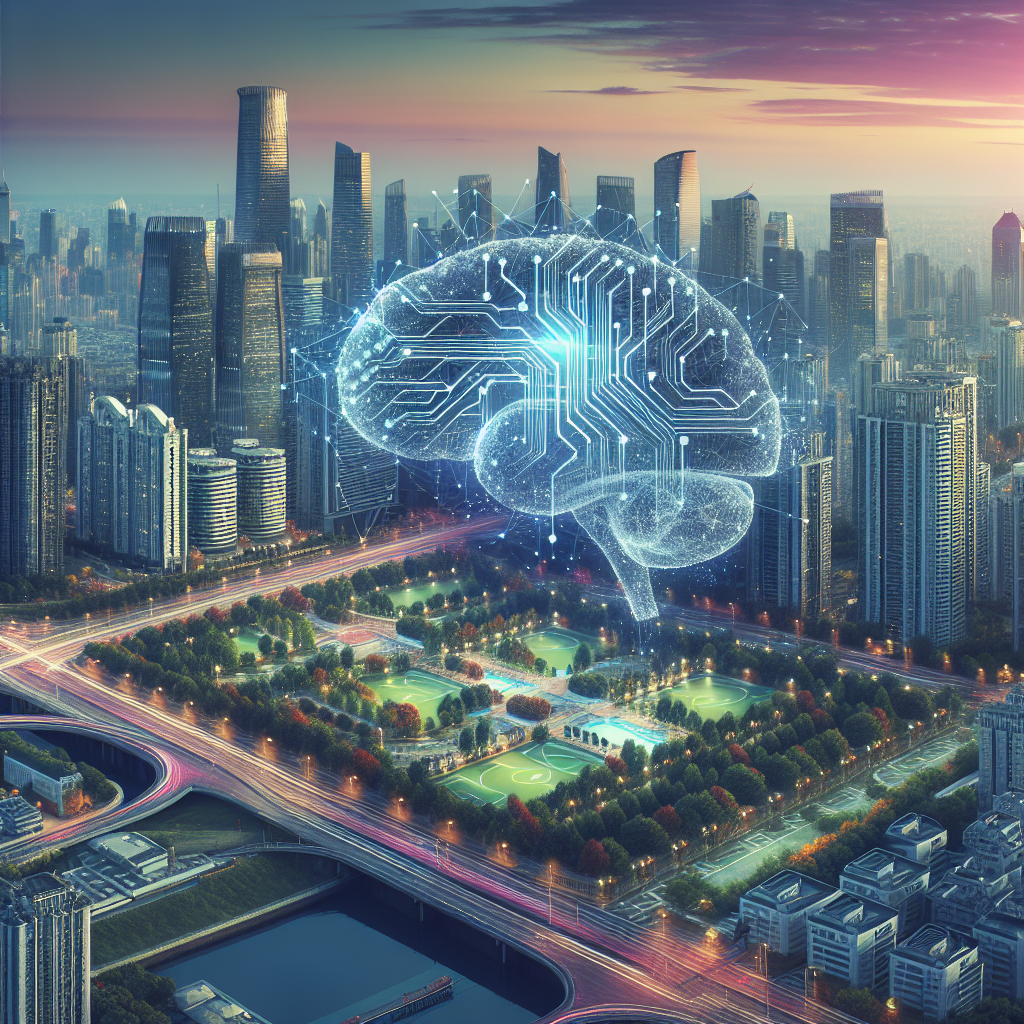Urban planning is a crucial aspect of city development and management, as it involves the design and organization of urban spaces to support the well-being of residents and promote sustainable growth. With the rapid urbanization of cities around the world, the need for effective urban planning solutions has become more pressing than ever. In recent years, artificial intelligence (AI) has emerged as a powerful tool for enhancing urban planning efforts and addressing the complex challenges faced by city planners.
AI solutions can help urban planners make more informed decisions by analyzing vast amounts of data and predicting future trends. By using AI algorithms, planners can gain valuable insights into traffic patterns, population movements, infrastructure needs, and environmental impacts, among other factors. This enables them to develop more efficient and sustainable urban plans that meet the needs of residents and businesses while minimizing negative effects on the environment.
One of the key benefits of using AI in urban planning is its ability to optimize resource allocation and improve decision-making processes. For example, AI can help planners identify the most suitable locations for new infrastructure projects, such as roads, schools, or hospitals, based on factors like population density, traffic flow, and proximity to existing amenities. This can result in more cost-effective and environmentally friendly development plans that support the long-term growth and prosperity of cities.
AI can also be used to enhance public participation in the urban planning process. By analyzing social media data and other sources of public feedback, AI algorithms can help planners understand the needs and preferences of residents and incorporate their input into decision-making processes. This can lead to more inclusive and transparent urban planning initiatives that reflect the diverse interests of local communities.
Furthermore, AI can help cities respond more effectively to unexpected events and emergencies, such as natural disasters or public health crises. By analyzing real-time data from sensors, cameras, and other sources, AI systems can help planners identify areas of risk and develop strategies to mitigate potential impacts. This can improve the resilience of urban infrastructure and enhance the safety and well-being of residents in times of crisis.
Despite the many benefits of AI in urban planning, there are also challenges and concerns that need to be addressed. For example, there are ethical and privacy issues associated with the use of AI algorithms to collect and analyze personal data. City planners must ensure that they are transparent about how AI technologies are being used and protect the privacy rights of individuals when implementing AI solutions in urban planning initiatives.
Another challenge is the potential for bias in AI algorithms, which can lead to unfair or discriminatory outcomes in urban planning decisions. To address this issue, planners must carefully design and test their AI systems to ensure that they are fair and unbiased in their recommendations. This may involve using diverse datasets, incorporating feedback from stakeholders, and monitoring the performance of AI algorithms over time.
In conclusion, AI solutions have the potential to revolutionize urban planning by providing planners with valuable insights, optimizing resource allocation, enhancing public participation, and improving emergency response capabilities. By leveraging the power of AI, cities can develop more sustainable, resilient, and inclusive urban spaces that meet the needs of residents and support long-term growth and prosperity. However, it is essential for city planners to address ethical, privacy, and bias concerns when implementing AI solutions in urban planning initiatives to ensure that they benefit all members of the community.
FAQs:
Q: How can AI improve public participation in urban planning?
A: AI can analyze social media data and other sources of public feedback to help planners understand the needs and preferences of residents and incorporate their input into decision-making processes. This can lead to more inclusive and transparent urban planning initiatives that reflect the diverse interests of local communities.
Q: What are some of the ethical concerns associated with using AI in urban planning?
A: Ethical concerns include issues related to privacy, bias, and transparency. Planners must ensure that they are transparent about how AI technologies are being used, protect the privacy rights of individuals, and design AI systems to be fair and unbiased in their recommendations.
Q: How can AI help cities respond to emergencies and unexpected events?
A: AI can analyze real-time data from sensors, cameras, and other sources to help planners identify areas of risk and develop strategies to mitigate potential impacts. This can improve the resilience of urban infrastructure and enhance the safety and well-being of residents in times of crisis.

